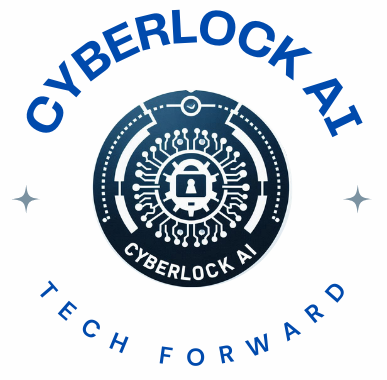The way people talk about hackers and the dark web these days can lead to a lot of confusion and wild myths. Movies often show hackers in hoodies, typing away in dark basements as they browse a mysterious corner of the internet for illegal things. In reality, the connection between hackers and the dark web is a lot more nuanced. Covering the basics helps clear up some of the big misconceptions you might have seen online or on the big screen. I want to break down what’s really going on, what’s fiction, and what parts you truly need to know if you’re wondering about digital safety or just curious about internet security culture.

The Real Story: What Are Hackers and the Dark Web?
Right away, it’s easy to lump hackers and the dark web together, but they’re not automatically linked. A hacker is basically anyone skilled at finding creative ways to solve problems with code or hardware. This can mean discovering security holes, building neat tools, or testing defenses. Not every hacker is a criminal, and plenty of them work on the good side of cybersecurity, helping businesses and regular people protect their data.
The dark web, on the other hand, is a part of the internet that isn’t easily accessible through regular browsers like Chrome or Edge. It runs on hidden networks such as Tor that make it hard to trace where users and websites really are. While the dark web does have shady corners for illegal trade, it’s also home to privacy focused forums, whistleblower sites, and even political activism communities, depending on where you look.
Common Myths About Hackers and the Dark Web
I’ve run into a bunch of myths about hackers and the dark web, and they can honestly cause more confusion than actual safety. Here are a few of the most common ones, along with some straight talk about how things really work.
- Myth: All hackers use the dark web for crime.
Not true. Many hackers, especially security researchers and ethical hackers, don’t touch illegal dark web marketplaces. Their work focuses more on finding and fixing potential exploits or helping companies stay safe. - Myth: The dark web is only for illegal use.
Actually, some people use the dark web for perfectly legal activities. Journalists and whistleblowers often depend on it to safely share information when they’re worried about surveillance or retaliation. Privacy advocates and those living under repressive governments also use the dark web to bypass censorship. - Myth: If your data is on the dark web, it was hacked by a pro.
Data breaches can come from weak passwords, phishing, malware, and even accidental leaks. While some of this hacked data shows up on dark web forums, its source is often not from some moviestyle super hacker but regular cybercriminals running automated attacks.
Breaking Down the Connection: How Hackers Use the Dark Web
The main way hackers might actually use the dark web is as a marketplace or a “meeting spot.” Criminals sometimes buy and sell things like stolen passwords, credit card numbers, or hacking tools on dark web sites. Besides that, some hackers advertise ransomware or offer their services for hire.
But here’s the big thing: loads of activity never touches the dark web at all. Most data breaches, phishing attacks, or viruses start on the open web and use regular email, fake websites, or malware. The dark web just ends up being the place where some of this stolen information is resold or discussed after the fact.
Getting Started: How the Dark Web Actually Works
The dark web isn’t a single website or service, and you can’t stumble onto it from Google. Most people tap into the dark web using special browsers made for privacy, such as Tor. Once inside, you can visit hidden websites with addresses ending in “.onion” instead of the usual “.com” or “.org”
These sites vary from ultra basic message boards to ecommerce shops, many offering illegal items or services. Some forums are dedicated to exchanging hacking knowhow, but you’ll also find plenty of scam sites, misinformation, and people just looking to make a quick buck.
- Tor Browser: The main gateway to the dark web, making your browsing less traceable by bouncing traffic through various nodes across the globe.
- .onion addresses: Special URLs only accessible using Tor or similar tech, and they’re tough to find without knowing the exact address since they don’t show up in most search engines.
- Reputation and Trust: On the dark web, reputation means everything. Many sites use feedback systems to help users spot scammers, much like with eBay. But there are no guarantees, and scams are common.
How Hackers Use the Dark Web, For Good and Bad
There’s no doubt the dark web is a hub for cybercrime, but that’s not the entire story. Here are the real ways hackers interact with it:
- Trading Stolen Data: One big use is for dumping or selling stolen login credentials and leaked databases. These are often packaged and sold to smaller scammers or criminals.
- Hacker Tools: From “phishing kits” that automate fake login pages to ransomware builders, plenty of hacking tools get shared or sold here. Some of these are coded by hobbyists, others by organized crime groups.
- Security Research: Ethical hackers and cybersecurity pros sometimes access the dark web to monitor threats, study the latest tools, or gather intelligence on new types of attacks.
- Privacy and Free Speech: For some, the dark web offers a rare lifeline for communication when regular internet services are blocked, watched, or filtered.
Risks and Realities: Things to Consider Before Exploring
It’s really important to understand that both hackers and non-hackers face some real dangers on the dark web. Here are some common hurdles to keep in mind:
- Scams: Fake sites are everywhere. You might think you’re buying information or a tool and instead lose your cryptocurrency to a scammer.
- Viruses and Malware: Downloading anything off the dark web can open you up to viruses, ransomware, or other malware. Many hackers target newbies who visit these sites unprepared.
- Law Enforcement: While connecting to the dark web isn’t illegal, plenty of what happens there is. Law agencies monitor major marketplaces and forums, and sting operations aren’t unusual. Just poking around illegal content, even without buying anything, can lead to unintended trouble.
- Reputational Risks: Visiting or interacting on well known forums, even for research, can give people the wrong idea if they see your screen or find logs on your computer.
Scams and Misinformation
If you’re thinking about exploring, it’s super important to watch out for misinformation and outright scams. Many listings for “leaked” databases or hacking tools are just bait to take your money. A lot of the “services for hire” you see, like hacking someone’s account for you, are total fakes.

Your Own Security
If you’re researching for work or out of curiosity, use a dedicated device that has no personal info and don’t download random files. VPNs, updated antivirus, and privacy minded browsing habits are all smart precautions.
Advanced Tips and Safe Practices for Staying Secure
If you genuinely need to research cybersecurity or threats on the dark web, there are smarter ways to stay one step ahead:
Stick to Research: Limit yourself to reading and never get involved in or purchase anything illegal. Things can spiral out of control quickly if you get involved in transactions.Use a Burner Device: Consider using a laptop or virtual machine you don’t use for personal stuff. You don’t want malware or trackers from a risky site ending up on your main computer.
Layer Your Privacy: Tor is helpful but not bulletproof. Combining a VPN with Tor can make tracking you down much harder.
Stay Updated: The cybersecurity space never stops moving. Following trusted blogs (like Krebs on Security or Threatpost) and updates from real infosec pros gives you the latest info on new threats and safe surfing tips.
Keep in mind that cybercriminals are always coming up with new tricks to breach security, so keeping an eye out for the newest methods can give you a real advantage. Even if you stick to reading, understanding how tools and attacks work can help protect your own data or business. If you’re working for an organization, ask about their official protocols for researching or monitoring threats that might originate from the dark web. Companies with a strong cybersecurity posture usually have clear guidelines and sandboxed computers for handling these sorts of investigations.
How All This Matters in the Real World
This whole topic isn’t just about shadowy online markets or scary stories. The connection between hackers and the dark web can influence anyone who uses a computer or smartphone. For example, data breaches that start with a weak password might end up on a dark web marketplace, leading to identity theft or spam. Businesses use dark web monitoring services to look out for stolen credentials before they’re misused. Parents and teenagers should both get a sense of what happens when personal data ends up here, and why public WiFi and repeated passwords bring extra risk.
- Identity Theft: Cybercriminals buy and use stolen logins to commit fraud and drain accounts.
- Ransomware Attacks: Companies and individuals sometimes get targeted using tools sold on the dark web, turning private files into a payday for attackers.
- Password Safety: Checking if your email or username appears in a dark web breach list gives you a heads up to change your passwords before someone takes advantage.
One added note—cybersecurity experts recommend using a password manager to create strong, unique logins for each site. This single step makes it way harder for hackers to access your accounts even if one service gets breached. Twofactor authentication also gives your profiles a significant boost in protection and can stop most account takeovers cold.
Frequently Asked Questions
Question: Is it illegal to access the dark web?
Answer: Not by itself. Just browsing with Tor isn’t illegal in most countries, but much of what happens there is, so steer clear of anything that looks sketchy or deals in illegal services or goods.
Question: Do hackers always use the dark web?
Answer: No, lots of attacks and research happen on the regular internet. The dark web just offers extra privacy and a place to trade resources for those who want to stay hidden.
Question: How can I check if my information is on the dark web?
Answer: There are online services like Have I Been Pwned (https://haveibeenpwned.com/) that monitor breaches and alert you if your info pops up. Some cybersecurity companies offer dark web monitoring for individuals and businesses.
Wrapping Up: What You Should Remember
The dark web and hacker worlds aren’t always what they seem in pop culture. Lots of hackers work for good, and the dark web has its share of people focused on privacy and free speech, not just crime. If you’re online, staying smart about passwords and how your details are shared goes a long way. And if you have a genuine reason to explore the darker parts of the web, taking serious steps to guard your privacy and device security is super important. Helpful links, reliable sources, and a cautious approach all make for a much safer experience in the digital wild west.
